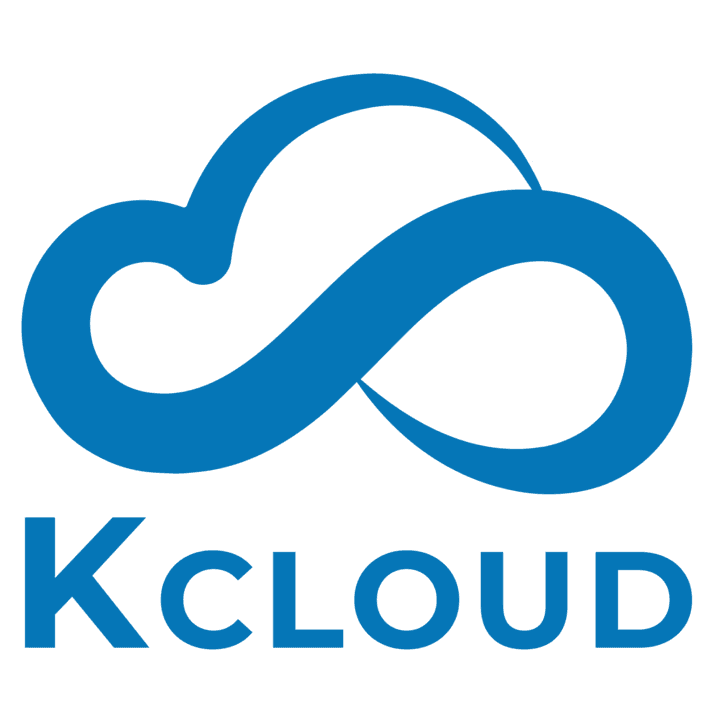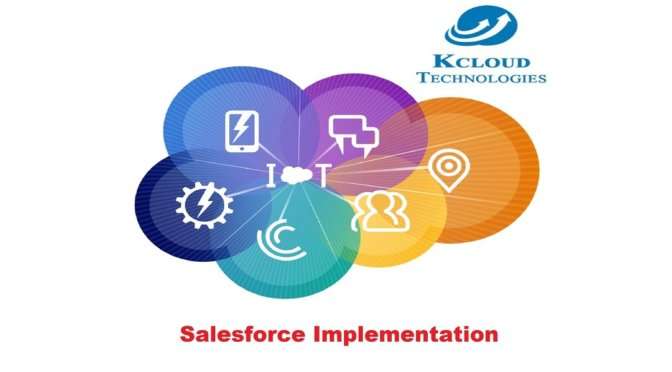Salesforce Implementation Services is the world’s No.1 CRM Platform that uses cloud-based applications for sales, service, and marketing. For understanding the Salesforce software, we need to dig deeper into two basic concepts that drive Salesforce. These concepts are Customer Relationship Management (CRM) and Cloud-based applications or Cloud Computing technology. On a superficial note, CRM is any kind of practice, technology, or strategy that helps a business to improve the customer relationship and a cloud is simply the outsourcing of computer programs.
Now, the business has a very long history, so it is obvious that customer relationship management exists in old times too. Since, where there is business, there is a customer and there has to be a good relationship between the provider and the consumer. What made Salesforce manage the business instead of the business owners themselves? What was the need for software that handles Customer Relationship Management? We all have the idea of personalization and customization in relationships, whether personal or professional and a business relationship with a customer is considered the most crucial one of all.
Steps of Salesforce implementation Services :
Tailored Solutions: Our Salesforce implementation services are customized to fit your specific business requirements, ensuring that the CRM system aligns perfectly with your processes.
Expert Team: We have a skilled and experienced team of Salesforce professionals, including administrators, developers, and consultants, who will guide you through the entire implementation journey.
Seamless Integration: Our services include seamless integration of Salesforce with your existing systems and applications, facilitating smooth data flow and enhancing overall efficiency.
Data Migration: We take care of the data migration process, ensuring that your valuable data is transferred securely and accurately to Salesforce.
Comprehensive Training: We provide comprehensive training sessions to empower your staff with the knowledge and skills needed to make the most out of Salesforce.
Ongoing Support: Our commitment doesn’t end with implementation; we offer continuous support to address any issues, provide updates, and ensure smooth operations.
Optimization and Scaling: As your business grows, we assist in optimizing and scaling your Salesforce instance to accommodate evolving needs and maintain peak performance.
Improved Productivity: With Salesforce, you’ll experience increased productivity, streamlined workflows, and enhanced collaboration among your teams.
Enhanced Customer Experience: Utilize Salesforce to deliver exceptional customer experiences, building stronger relationships and driving customer loyalty.
Data-Driven Insights: Leverage the power of Salesforce’s analytics and reporting tools to gain valuable data-driven insights, enabling informed decision-making.
Competitive Advantage: By harnessing Salesforce’s capabilities through our implementation services, your organization gains a competitive edge in the market.
Be it any small, medium, or big enterprise, the goal of customer relationship management is to improve the business relation. CRM is the interaction with customers and potential customers and staying connected with them to streamline business processes and improve profitability. Customer Relationship Management includes tools such as storage of contact information, identifying sales opportunities, recording, and service issues, and managing marketing campaigns. All of these actions contribute to improving the customer relationship. Customer Relationship Management allows you to give attention to your organization’s relationships with individual people whether customers, colleagues, service users, or suppliers. CRM is not only for sales. Some of the major gains in productivity come from moving beyond CRM as a sales and marketing tool and embedding it in your business – from HR to customer services and supply-chain management.
Salesforce works on cloud-based applications. So, here another concept comes into the picture, the cloud.
What is a Cloud/ Cloud Computing?
It is simply the outsourcing of computer programs that does not requires us to worry about storage and power, we can easily without any hassles, enjoy the result and get the maximum out of it. Traditional business applications used to be very complicated and expensive too. There was a large list of hardware and software requirements along with an IT expert to carry out the setup and installation and timely upgrades too. To overcome all of these problems, cloud computing comes to the rescue. Cloud computing is a technology that looks after the management of hardware and software. Here, in this case, this responsibility is taken by Salesforce. It provides automatic upgrades and it is also easy to scale it up or down. A cloud can be public, private, or hybrid.
Cloud computing is of three types:
- Infrastructure as Service (IaaS): The third party hosts the infrastructure as hardware or the software
- Software as Service (SaaS): Software such as the internet is used as a tool.
- Platform as Service (PaaS): It gives you the service without being to deal with coding.
Cloud is used in Salesforce software due to several reasons. Some of the benefits of using the Cloud are as follows:
- It is adaptable. The app can be customized to allow the owner’s control over it over the code.
- It can be personalized and portals can be given to several customers, which shows the multi-tenancy of the Salesforce Cloud.
- As it is hosted by a third party, the business has greater assurance of reliability and gives easy access to customer support.
- It functions on every device and also integrates with other applications.
- With the increased number of security resources and centralization of data, it also provides a very good and secure environment.
Now, that we have understood the base of Salesforce and what factors contribute to its idea and existence. We are ready to implement it into our business. Let us have a step-by-step look into the method of Salesforce implementation.
Plan the integration
Before constructing any building, we start with the blueprint, we follow the same approach in Salesforce implementation Services too. Planning is very crucial at the time of implementation as the whole business process would depend upon it. You need to define objectives and outcomes, expectations from this integration, and proper checkpoints to analyze the progress. The establishment of benchmarks for the measurement of progress is also an important part.
Build up a good team that comprises an executive sponsor, an administrator for the daily management of Salesforce, a project owner to get the application running, and a user who has all the knowledge about the business processes in the company.
Developing a rollout plan and prioritizing the goals would be the next important thing to do. Since sales need to increase with this Salesforce implementation. Being familiar with the terms used in Salesforce is also very important to grasp it easily.
Educating the team
Investing your time in learning the Salesforce idea, base and working is the best way to ensure your success. The next step for the Salesforce implementation is to attend virtual or classroom training for the administrator and other team members to get a better understanding of the system. During the implementation, you should consider getting help from the large network of certified consulting partners too. They can assist with all aspects of the implementation.
Prepare the data
A business organization has huge data. It requires to be neatly sorted before the Salesforce implementation. Some important decisions have to be made as to who can have access to how much data. The extent of data visibility to customers, employees, and partners, determining role hierarchy, sharing rules and manuals, customization of fields, layouts, and reports.
Understanding the profiles to be used:
- System Administrator – Can configure and customize the application
- Standard User – Can run reports and create and edit records
- Read Only – Can run and export reports and view—but not edit—records
Transfer your data
The most important part that gives life to the Salesforce implementation in your business is the transfer of data. Once you have prepared and understood all the data and its usage in Salesforce implementation, it can be transferred to the Salesforce database. After the data transfer, you are all set to go live. Some necessary things to keep in mind while handling data transfer:
- Consider importing data during non-working hours, it avoids confusion.
- Give yourself some cushion for error, for example, don’t transfer the data a day before sales training.
- Validate your data i.e. run key reports and display important screens in order to make sure that all the data was transferred in the desired format.
Engage and track progress
You may start by training the end users and developing a good training strategy by understanding the audience. Providing relevant content can help in the process of engagement. Deliver effectively the content to the users.
When you are set to work on Salesforce, here is what to do next as the final step for Salesforce implementation:
- Introduce additional functionality
- Manage data quality
- Join the community
- Manage releases
After all these processes have been done and dusted, we are all set to use Salesforce implementation successfully in our sales and marketing. Salesforce implementation has increased the efficiency of business sales of its users. It works in a very effective way by managing all the Customer relationship tools automatically. It gives you enough time to focus on other important strategies of the business while leaving the length and important procedures on autopilot.
Salesforce implementation has been proven beneficial in lead management, streamlining the business processes, keeping track of the customer timeline and activities, managing contacts, and sharing their interest, closing deals fast. It can provide you with all the CRM benefits that you could not possibly get by doing it individually or setting up and installing any number of applications on your system. You can try but you would not like the enormous effort you have to put into logging into every application, each time you need information about one particular customer timeline. Salesforce implementation can make your task easier and your goals nearer. Why not take a trial?
For services, contact us at sales@kcloudtechnologies.com

